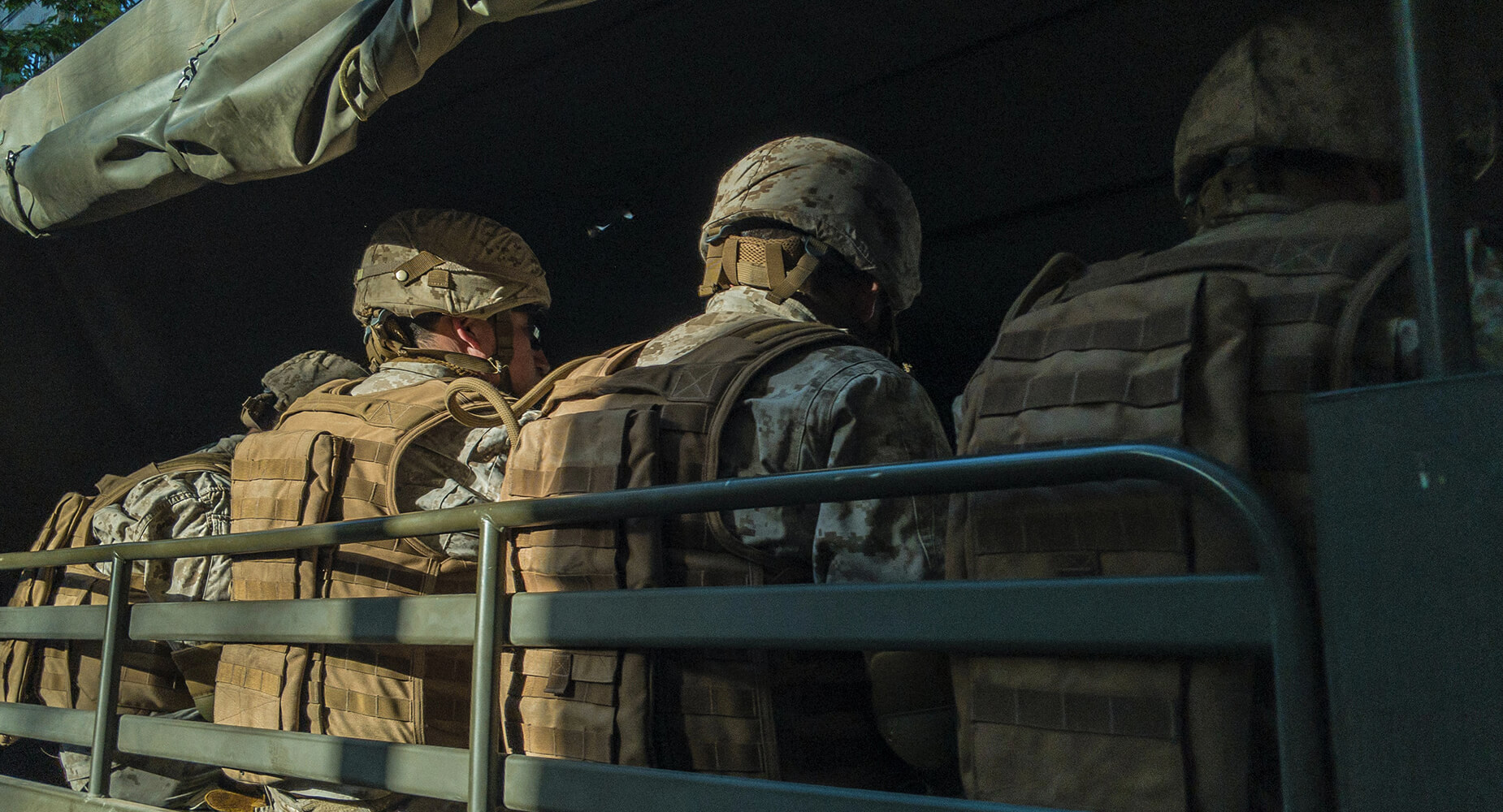If we consider Ukraine properly European, the risk of a Russian invasion into mainland Europe, on lands directly bordering NATO’s eastern flank, is a scenario to be found this century in garish works of fiction – until now. With his invasion of Ukraine beginning, Putin is putting into play his long-held ambition to recreate the former USSR and put pressure on the NATO-member Baltic states.
As it stands, the West have provided training and ordnance but, otherwise, are leaving Ukraine to its fate militarily. NATO leaders put their faith in sanctions whilst President Putin puts his in military mass and overmatch.
In terms of British Defence policy and practice, how has it come to this?
First, a sympathetic soul would say that the West under US leadership has underperformed this century. A more belligerent person might assert that Western involvement in Iraq was an overt disaster and Afghanistan as humbling a humiliation as Russia’s own adventures in that territory during the late 70s– and people like Putin notice. NATO’s role in the latter especially, where operational lessons remained unlearnt and institutional and doctrinal changes were resisted, should be seen by future historians as a low-point for the Alliance. Politically and militarily, NATO’s responses to President Putin now – with him having demonstrated (yet again) his malicious intent – might offer the Alliance the twin-gifts of awakening to strategic peril and reshaping its intent as a result. This response has to be built, politically, on credibility and resolve.
Militarily it needs to be conceptualised around an ability to generate and apply mass force, blended to niche, emerging capabilities, technologies and techniques, and a military leadership chosen for its flexibility of thought, moral courage and resolute commitment rather than nationality or cap badge. Strategic reform to meet strategic challenge will not be without pain – but it is necessary and might prove cathartic. After all, NATO has had for a while now an organisation called Allied Command Transformation – its work now is critical and it must deliver.
Second, for the UK – from Basra to Kabul – a narrative of defeat, retreat and repeat this century has sapped morale, weakened resolve and caused many of the best young leaders to give up on their military careers. With this reality coupled to the Coalition Government’s squeeze on Defence budgets from 2011 and with many of the British people perceiving their soldiers to be victims in need of charity rather than cornerstones of modern society, there is the risk that the role and criticality of our armed forces to positive outcomes on the battlefield and to broader geopolitical success is no longer understood. For the British defence enterprise to prosper and prevail, this perception has to be changed and political, commercial and military leaders encouraged to lead a reawakening of the importance of British martial power. In addition, this can only help NATO’s necessary transformation.
There is good news. The Government’s commitment of £6.6 billion to be spent on defence research and development is significant, as are refreshed strategies for the Land Sector, innovation and the supply chain. Commitments to the protected sectors of nuclear, complex weapons, novel weapons and offensive cyber, for example, allows both military planners and company directors the luxury of matching future resources to known and emerging programmes and projects, maximising efficiencies and economies. The British military’s signalling of its transformation of force structure and concept of operations is welcomed as it allows technology innovators to match their efforts to future military needs. The debate around seed-corn funding of such military innovation can now begin in earnest.
As a result, there is an emerging consensus, across the political spectrum, for an active defence industrial policy, with the Government’s Defence and Security Industrial Strategy of 2021 seemingly matched by the Labour Party’s thinking on defence, reshaping to reflect the importance of the commercial sector. Without private sector capital, research and development, technologies and competencies there is no UK defence capability. This political realisation that the nation’s armoury is a commercial, private sector reality, blended with the public sector and armed forces, can only be good for future investment and capability generation.
Given this stance, companies like Leidos will be encouraged to invest in the UK, positively disrupting the commercial and logistical status quo, whilst home grown businesses like BAE Systems will continue to play critical roles in generating tomorrow’s defence capabilities and the local communities of skilled engineers, scientists, researchers and project managers necessary for their development. In so doing, the company will be nurturing a future skilled workforce for the UK that goes way beyond the defence sector. Niche, small enterprises such as Subsea Craft will have the confidence to blend private finance with high-end and emerging technologies to transform the maritime operating environment, thereby securing British military and diplomatic influence through exports, digital exploitation and training.
All of these initiatives, policies, strategies and activities offer hope for a reimagined and effective UK Defence posture, anchored in NATO and driving the latter’s efforts at strategic change.
But this must happen now and the impetus must be urgent and relentless.



